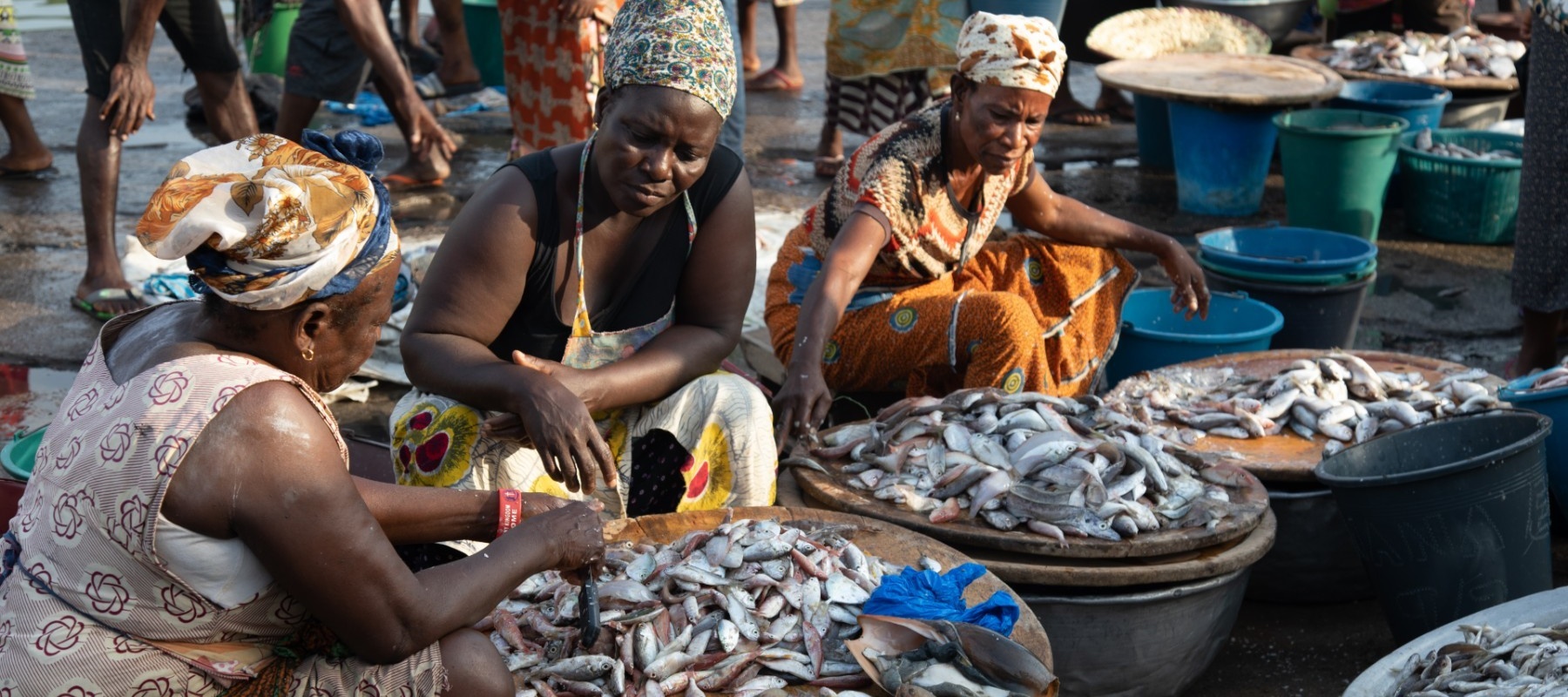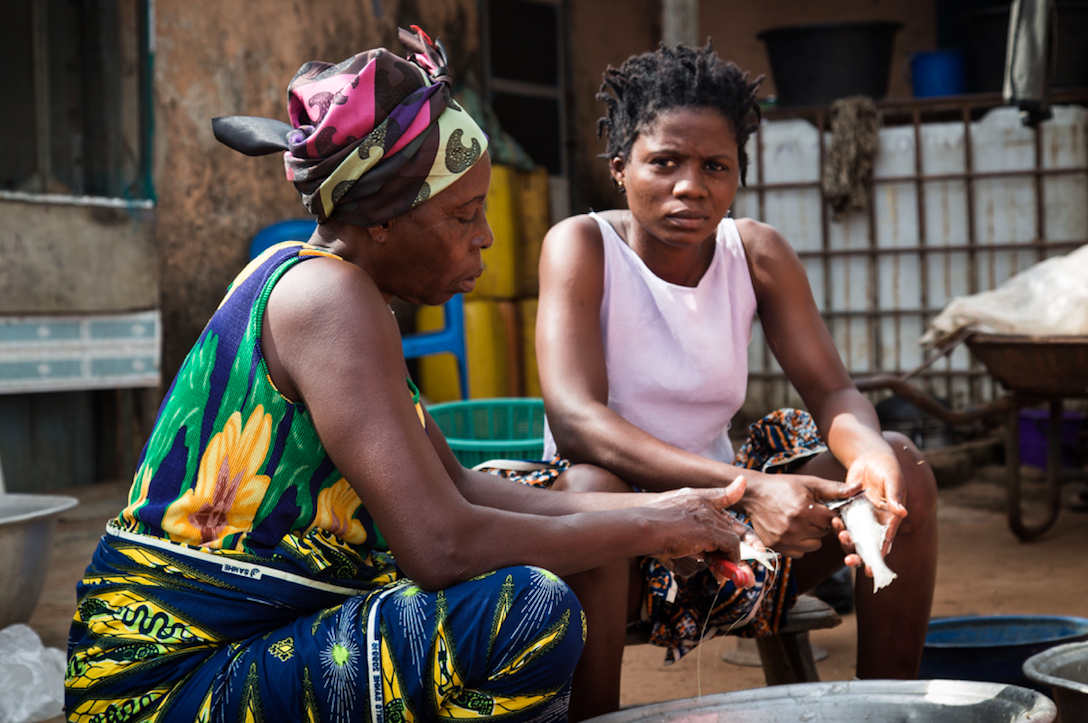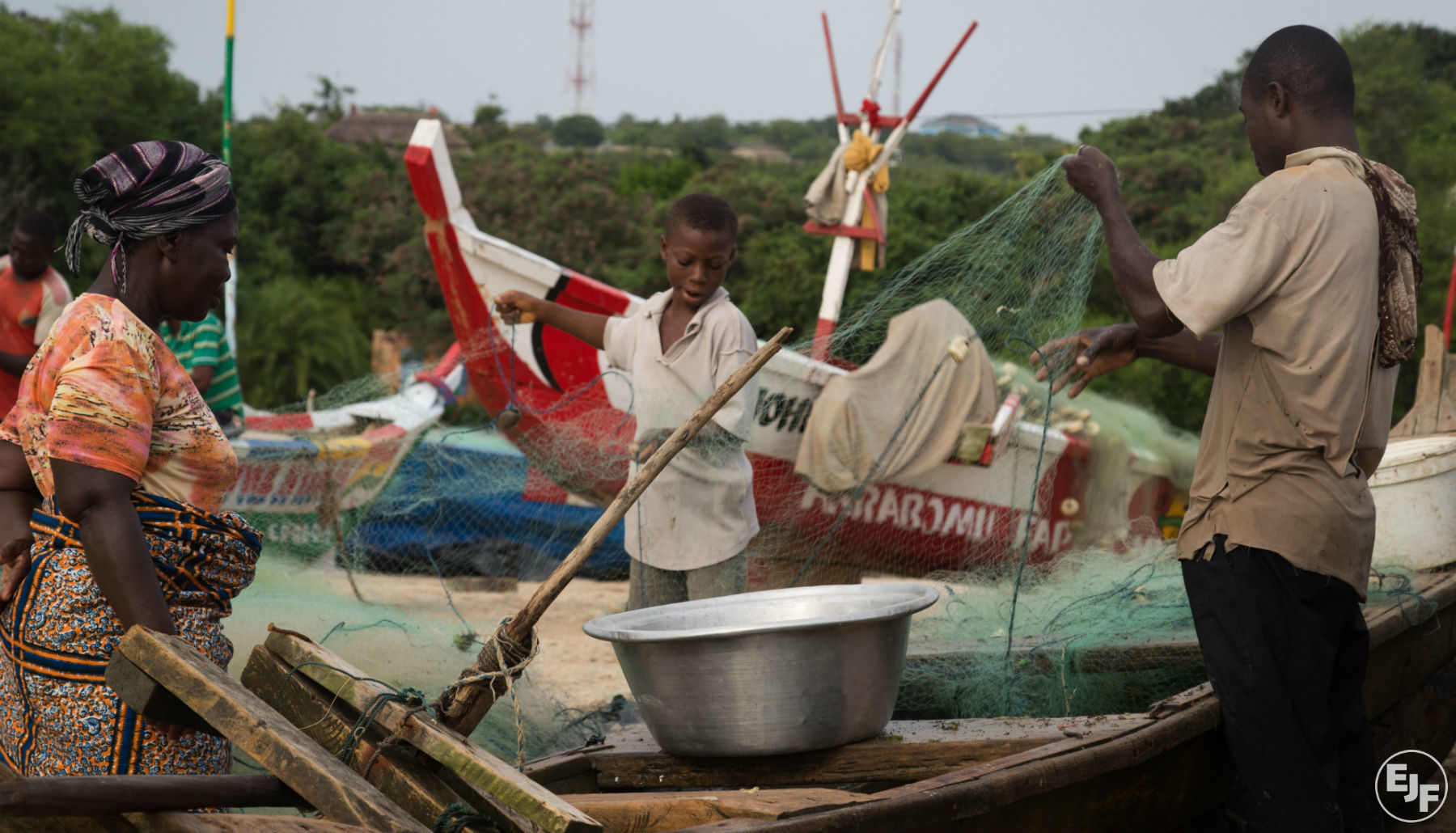Ghana’s fisheries are in crisis. Local fishing communities are struggling to maintain their livelihoods as industrial trawlers compete for limited fish.
Women play a vital part in Ghana's fisheries, making up a large proportion of the workforce. Yet we have found that their voices are not always heard.
EJF aims to empower people, allowing them to protect their rights and livelihoods. When we work with local fishing communities, we will be making sure that women have an equal say in decision making, and their contributions are taken into account.
The Konkohemaa
Along the coastlines of Ghana, the Konkohemaa – the queen fishmonger – is recognised as the most powerful woman in the fishing community.
When the boats dock, she is the one to bargain with the fishermen.
Traditionally, women in the fishing communities of the Central Region of Ghana – the Konkohemaas amongst them – have owned boats and financed trips, guaranteeing them a portion of the catch.
But this traditional system is giving way as profits fall. The Kokohemaa no longer has the same authority. Increasingly, the fish simply goes to those who can pay the most.
Afua
Fish mongering is a profession passed down from mother to daughter in Ghana.
Afua remembers learning how to process fish from her mother at the age of 15.
She recalls seeing the local canoes on the horizon, and being able to read the signs that told them the fishermen had made a catch.
However, as industrial trawlers compete for increasingly limited resources, the fishmongers are often forced to buy fish to smoke, rather than rely on the catch each morning.
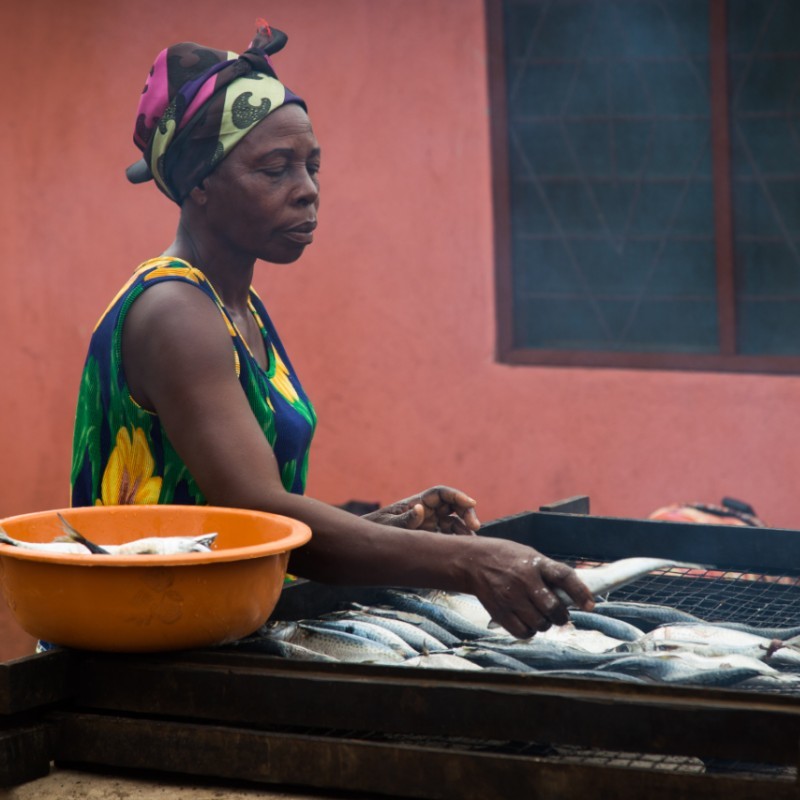
It’s worrying because my business is going down. And it means the little savings I have, I have to use to support my family
Afua, smoking fish. The scarcity of fish is diminishing her business.
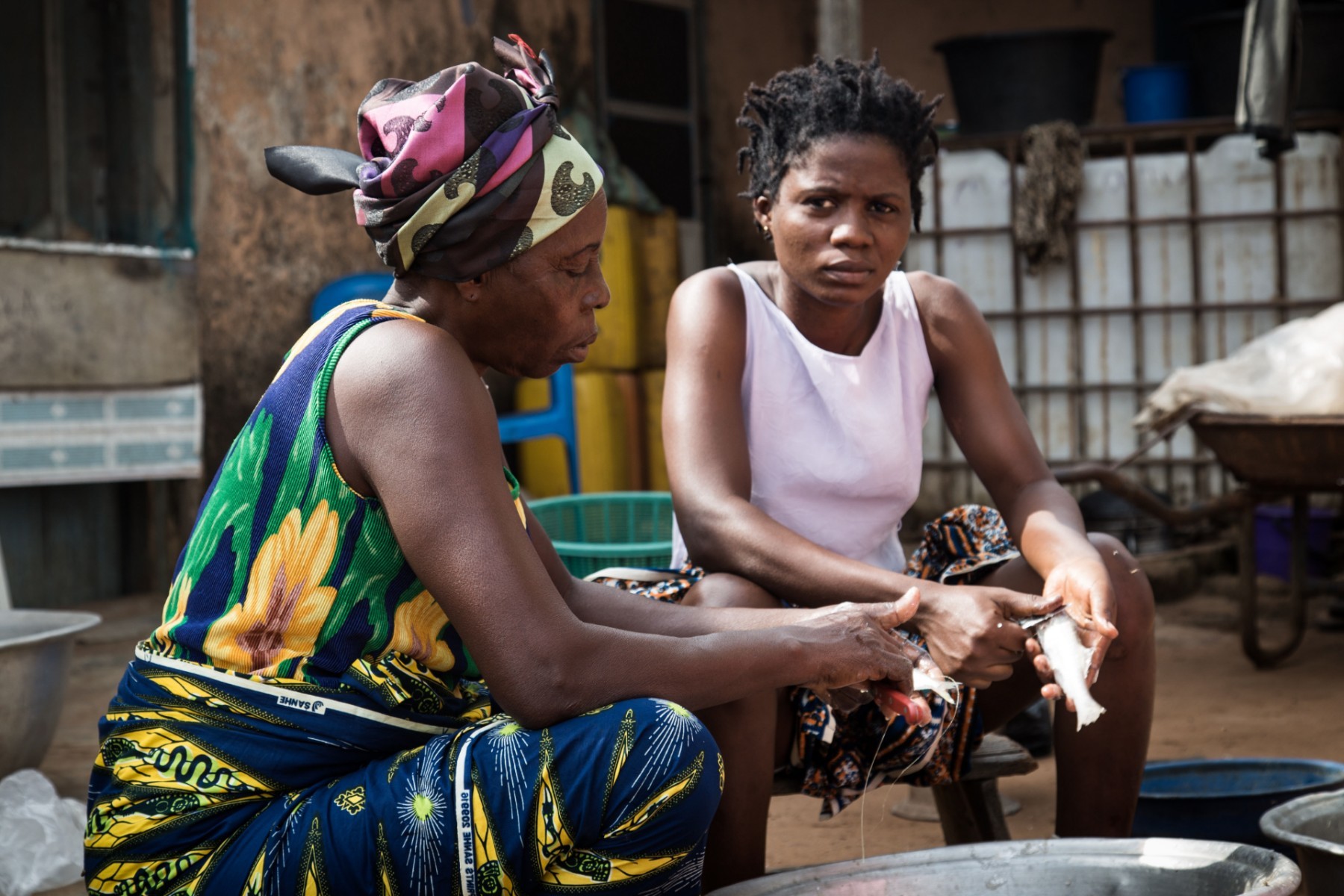
Rose
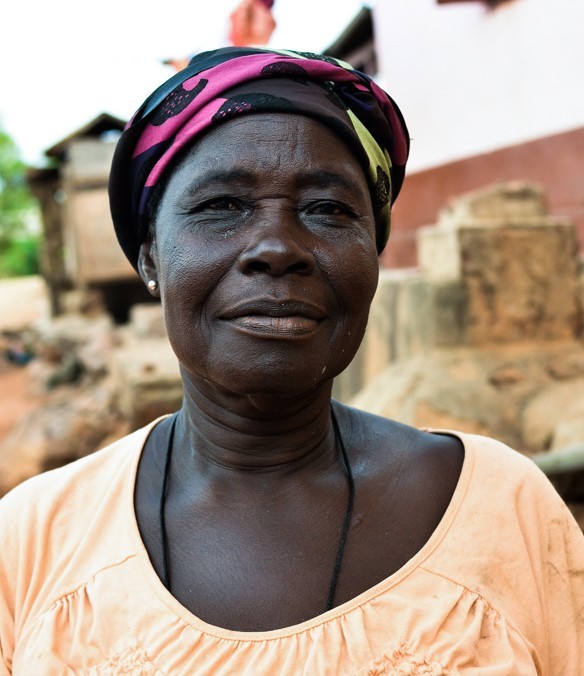
Rose, sister of Afua. She has been a fishmonger for 20 years: “You need to identify your passion in the world”, she says, and being a fishmonger is still hers, despite the increasing challenges.
Ekua
Ekua, fishmonger from Ankaful, Central Region. She has five children and has been processing fish since her first child was born in 1983. Because of her husband’s poor catches, she has to buy fish most days to process and sell.
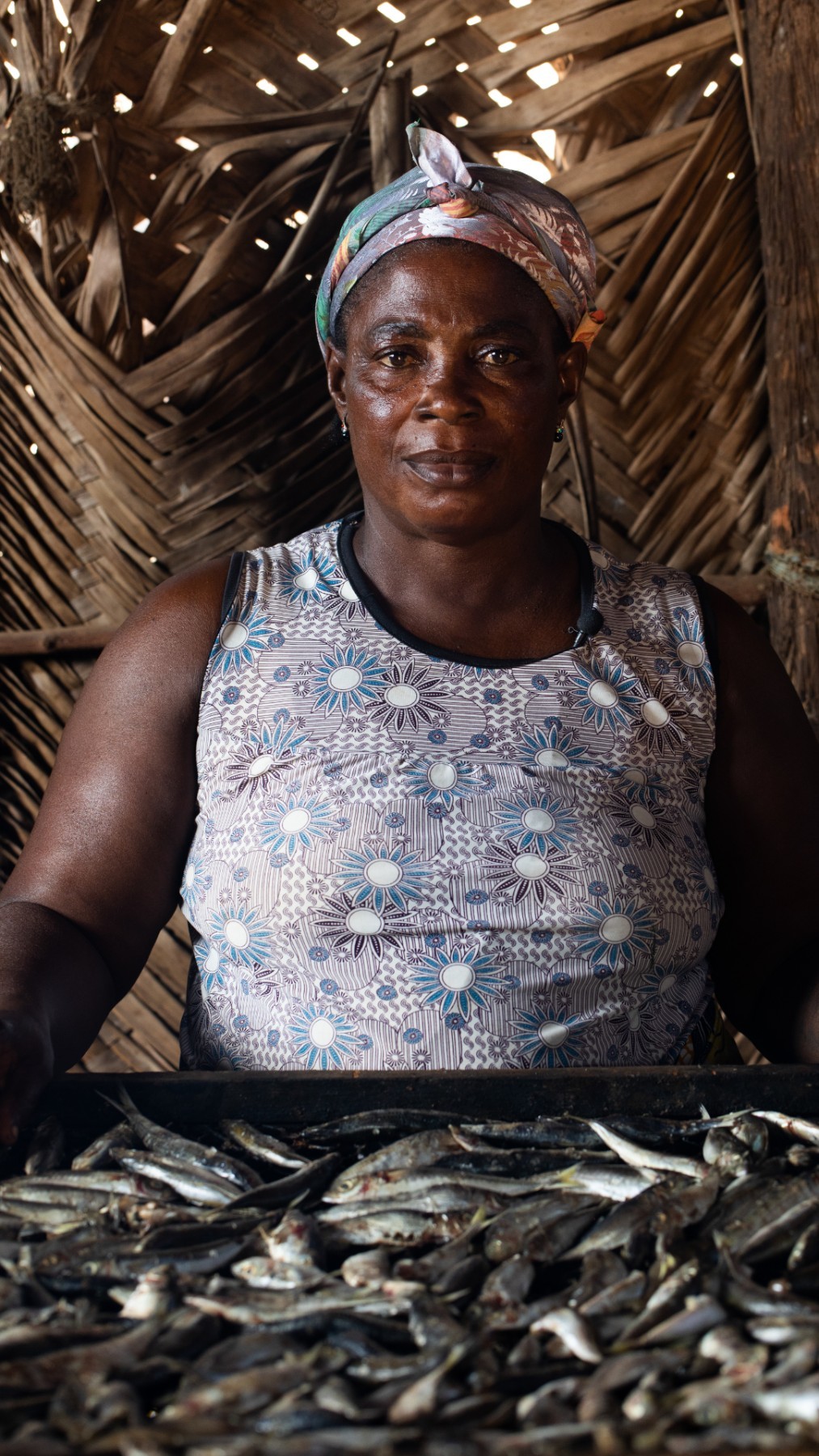
“This morning, after house chores I will bathe the children, so they can go to school. After I will go to shore to get the fish that my husband will catch for smoking and then cook, so that I can feed the children when they return from school. I buy fish when they get nothing at sea.
Fishing processing was good in the beginning but now it is worse. We are worried. We are really worried that fishermen get no fish in the sea nowadays.”
“If my husband stops fishing we will starve. That is why he is working very hard to sustain fisheries. If he stops fishing, what work will we do? We have only one job, which is the sea. They go for hours in search of fish but come back with nothing.
They go in search of fish so we can cater for the family but they land with no fish at all.

This morning, after house chores I will bathe the children, so they can go to school. After, I will go to shore to get the fish that my husband will catch for smoking and then cook, so that I can feed the children when they return from school. I buy fish when they get nothing at sea. Fishing processing was good in the beginning but now it is worse. We are worried. We are really worried that fishermen get no fish in the sea nowadays.
Ekua, fishmonger from Ankaful, Central Region. She has five children and has been processing fish since her first child was born in 1983. Because of her husband’s poor catches, she has to buy fish most days to process and sell.
Ama
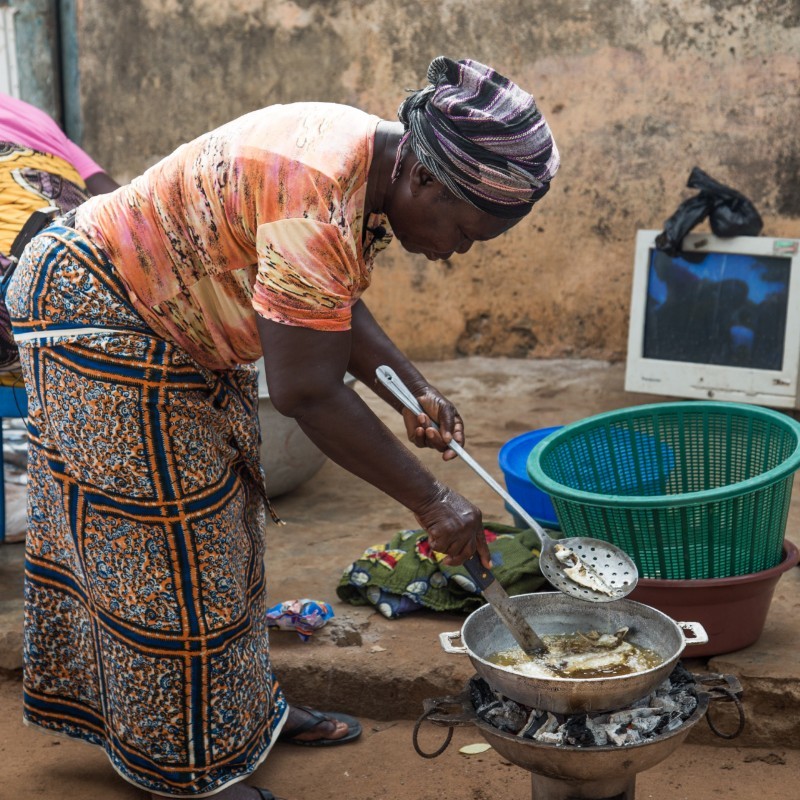
“There isn’t enough fish now. So I get some of my fish from the cold store before I smoke and sell them.”
Bringing women into decision making
Women are funding trips, running businesses, cooking, marketing and selling fish. In the Greater Accra Region, they are also out on the freshwater lagoons and lakes.
Clams are their main harvest, and most of these women have travelled from the Volta Region. There they learned how to use traps and baskets to catch clams and fish
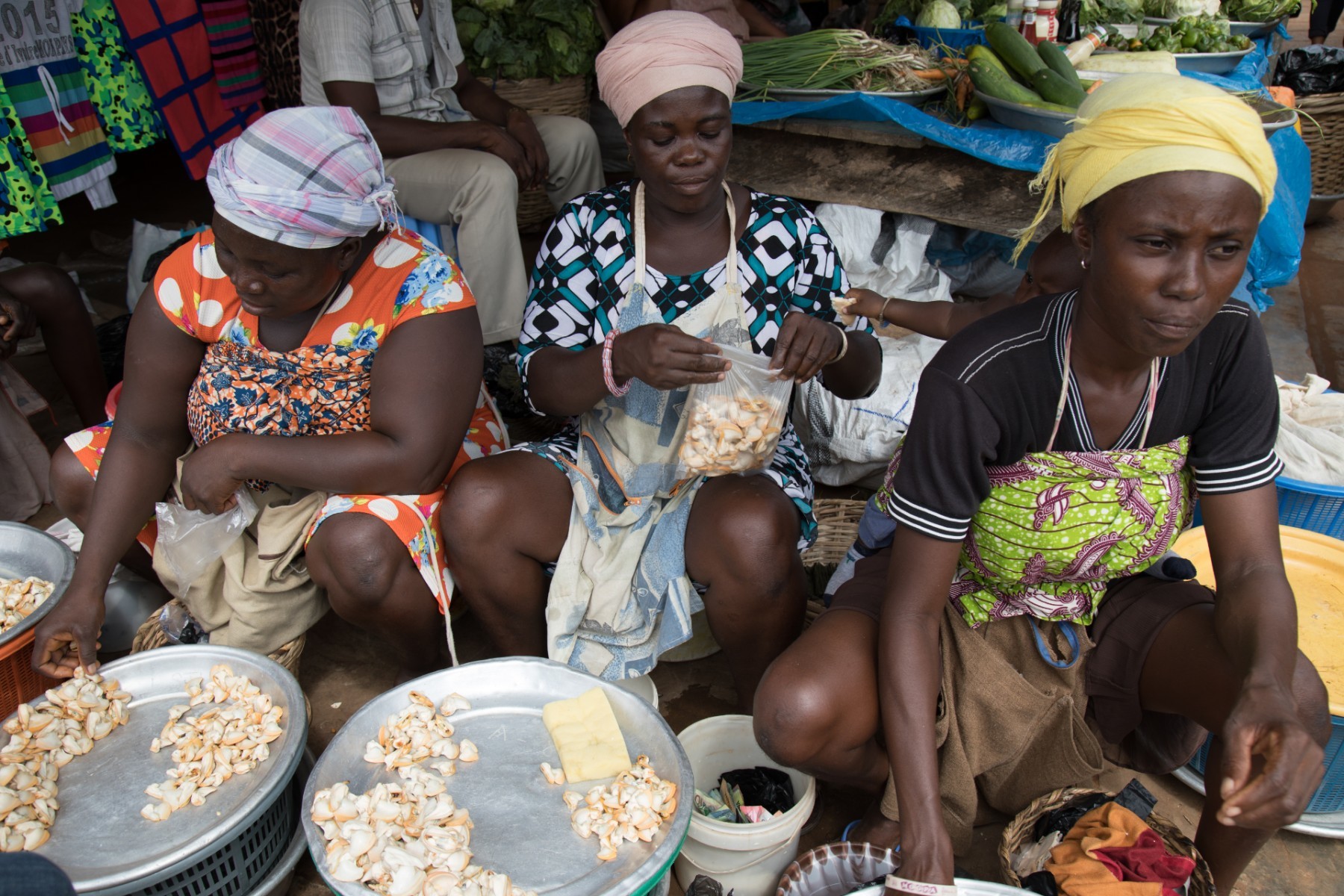
EJF and local partner NGO Hen Mpoano have found that women are left out of technical initiatives, community meetings, and management decisions. Illegal fishing has a drastic affect on their businesses too, and yet they have no say in the way this is tackled.
With the UN theme of 2019’s International Women’s Day being “think equal, build smart, innovate for change”, it is time to push for an equal distribution of resources, and a platform for women at every level of the industry.
This is not only fair, but essential to win the fight for sustainable fisheries in Ghana. To tackle illegal fishing, to save marine life and people’s livelihoods, women must be heard.
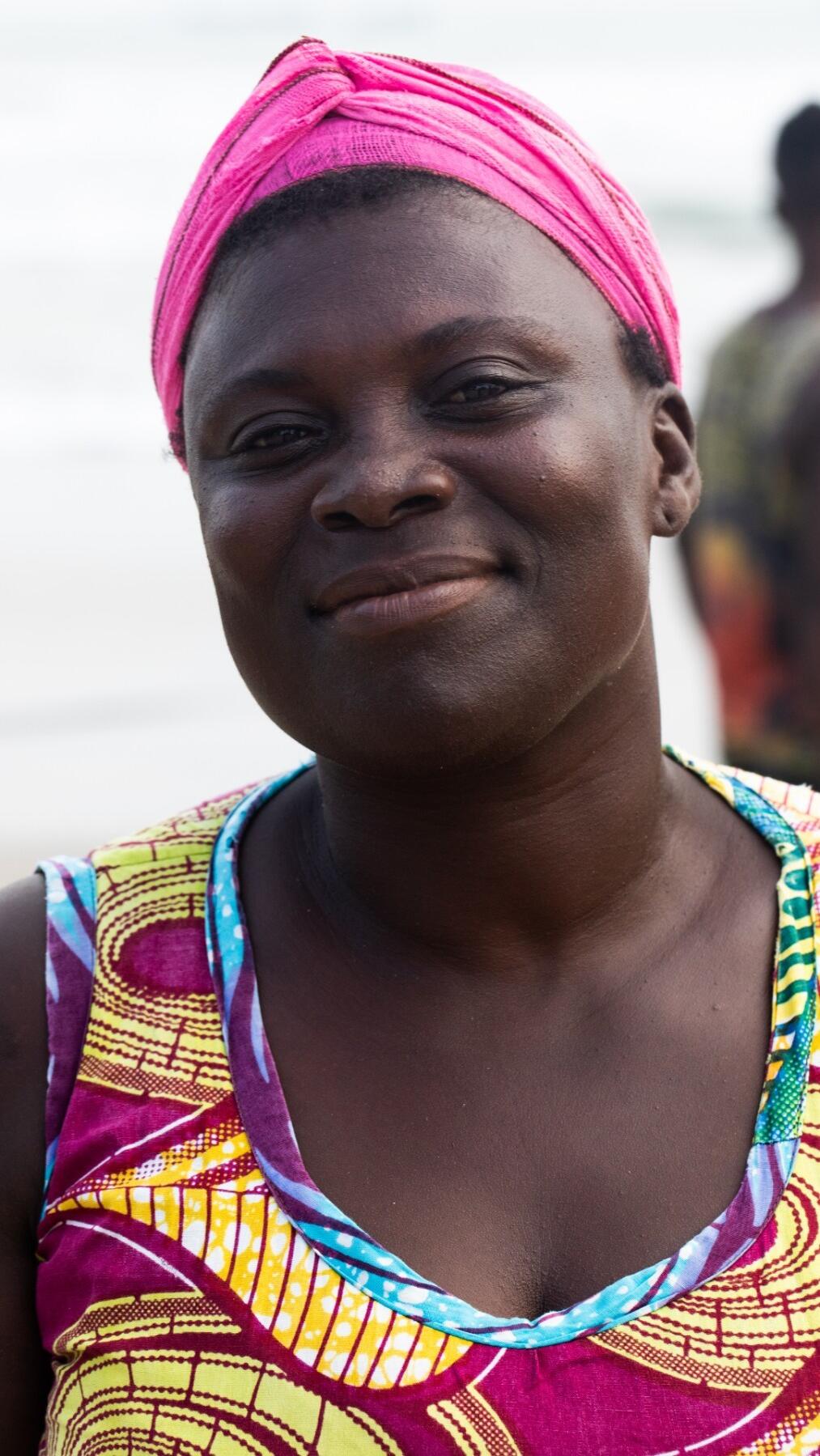
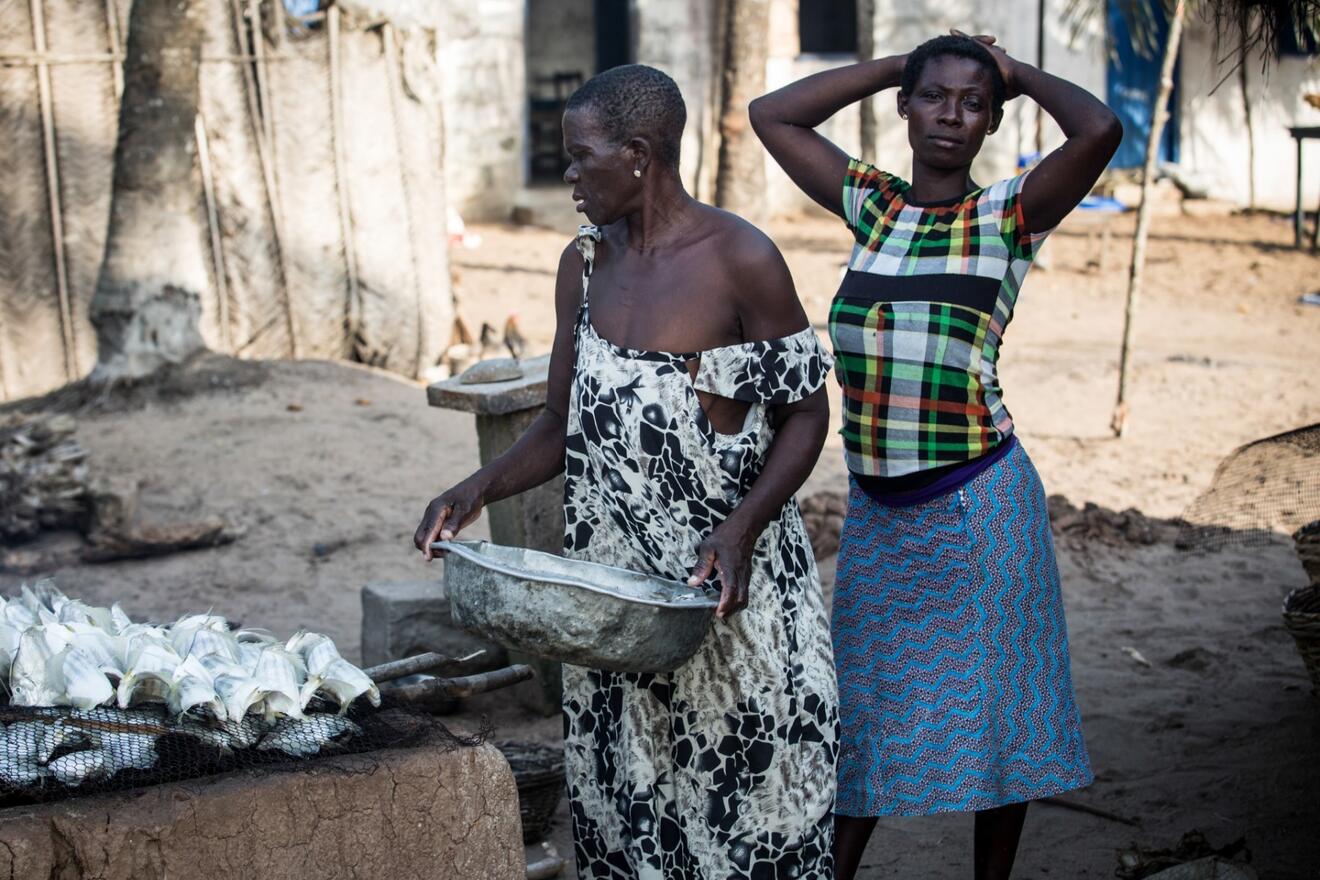
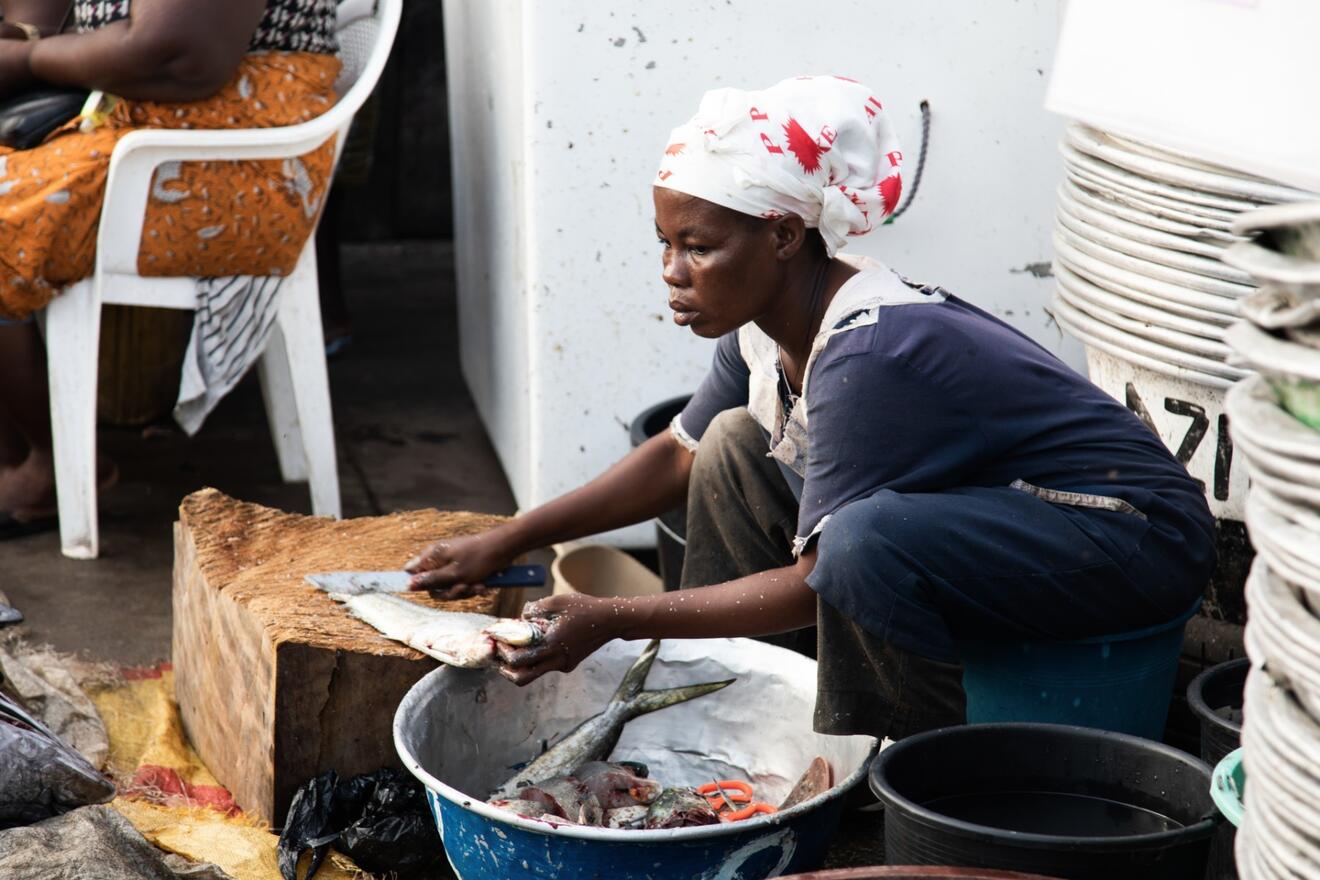
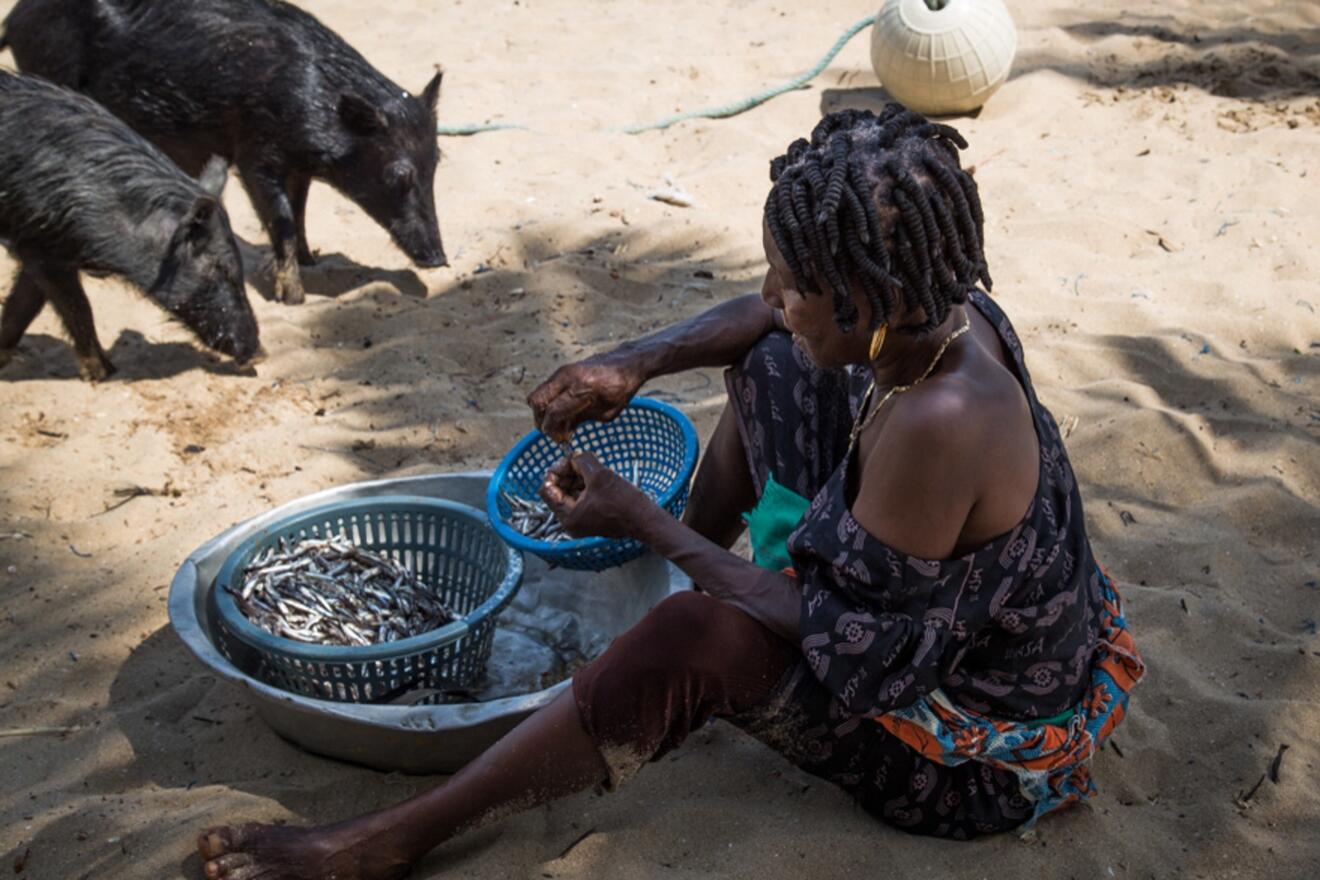
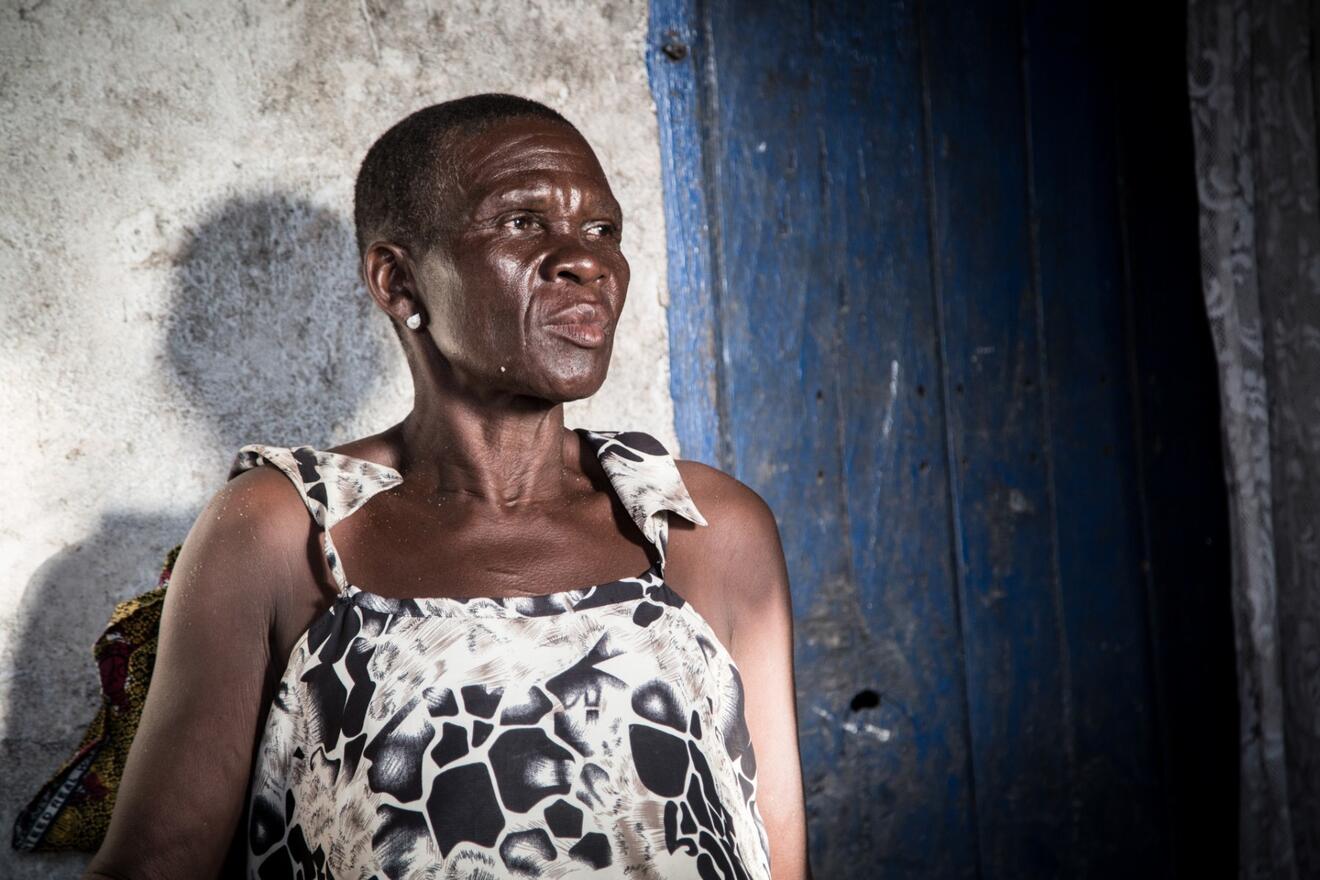
SIGN UP FOR OUR EMAILS AND STAY UP TO DATE WITH EJF
